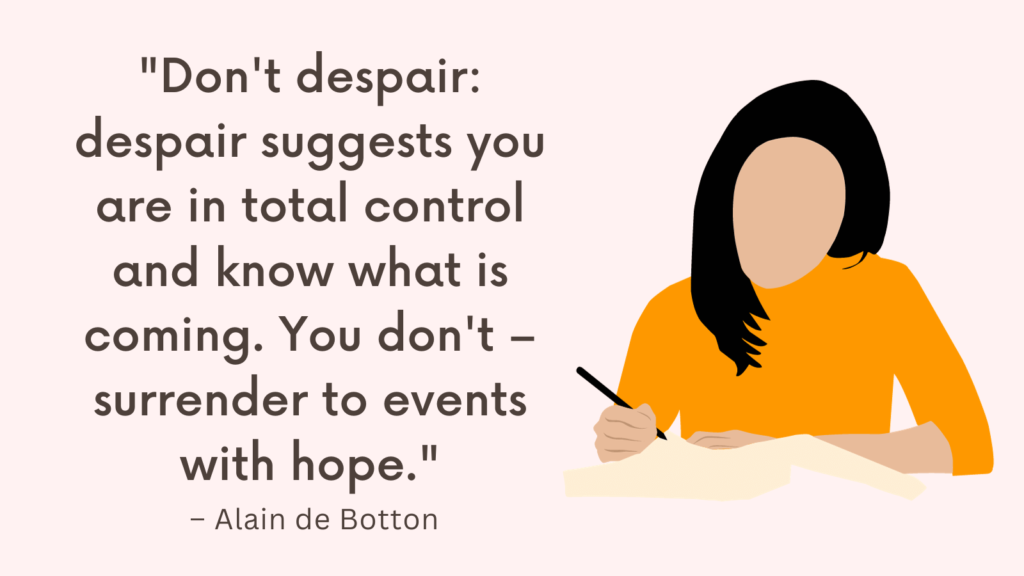In this post, you’re going to learn How to talk with your partner without fighting.
I Can’t Talk To My Husband without Him Getting Angry: Top 8 Things to Do
Having open and effective communication in a relationship is crucial for maintaining a healthy and fulfilling partnership.
However, it can be challenging when one partner tends to get angry during conversations. Here are some strategies for talking with your husband without triggering anger:
1. Choose the right time and place
Find a suitable environment where you both feel comfortable and won’t be easily distracted.
Select a time when both of you are relatively calm and not rushed.
Avoid discussing sensitive topics when either of you is tired, hungry, or stressed.
2. Use “I” statements
Frame your thoughts and feelings using “I” statements instead of accusatory language.
For example, say, “I feel hurt when…” rather than “You always make me feel…”
Related: Assertive Anger: What It Is & How to Practice It
3. Express empathy
Show genuine understanding and empathy towards your husband’s perspective.
Acknowledge and validate your husband’s emotions, even if you may not agree with his perspective.
Let him know that you understand how he feels and that his emotions are valid.
Avoid minimizing or dismissing his feelings.
For instance, you could say, “I can see that this situation has made you upset, and it’s understandable that you feel that way.”
This helps create a safe space for open dialogue and reduces defensiveness.
Related: Top 14 CBT Exercise For Anger Management (+FREE Anger Worksheets)
4. Use non-verbal cues
Pay attention to your non-verbal communication.
Maintain an open posture, avoid crossing your arms, and have a relaxed facial expression.
Non-verbal cues can help convey empathy, interest, and receptiveness.
5. Stay calm and composed
Keep your own emotions in check during discussions.
Responding with anger or defensiveness is likely to escalate the situation.
Take deep breaths, practice self-soothing techniques, and use grounding exercises if needed.
6. Avoid blaming and criticism
Instead of focusing on what your husband is doing wrong, express your concerns and needs.
Use constructive language and focus on finding solutions together rather than dwelling on past mistakes or faults.
Clearly state your needs and expectations while being respectful of your husband’s perspective.
Avoid passive-aggressive remarks or hints that can create confusion or resentment.
Related: Anger Iceberg: How to Use It (+FREE Anger Iceberg Worksheet PDF)
7. Seek common ground
Look for areas of agreement or shared goals.
Emphasize your desire to work together as a team to find mutually satisfying solutions.
Building on common ground can help bridge gaps and reduce conflict.
8. Take breaks when needed
If tensions rise and a conversation becomes too heated, it’s okay to take a break.
Agree on a specific time to resume the discussion, allowing both parties to cool down and gather their thoughts.
Remember, every relationship is unique, and these suggestions may not fully address all circumstances.
If your husband’s anger persists or becomes overwhelming, it could be beneficial to seek couples therapy or individual counseling to explore underlying issues and develop healthier communication patterns.
Related: Best 10 Anger Management Books And Workbooks
Why Does Your Husband Get Angry When You Talk to Him?
Understanding why your husband gets angry during conversations is a complex matter that can vary from person to person.
However, the following are some general insights into potential reasons why someone may become angry during communication:
1. Communication style
Different individuals have distinct communication styles.
Some people may have a tendency to react with anger when they feel criticized, attacked, or misunderstood.
They might perceive certain words or phrases as threats, leading to a defensive response.
2. Emotional triggers
Past experiences and emotional baggage can significantly impact one’s emotional reactions during conversations.
If your husband has unresolved issues or traumas related to communication, certain topics or patterns of interaction may trigger anger or frustration.
Related: Top 7 Tips On How To Create A Conscious Relationship Using ACT
3. Power dynamics
Power imbalances within a relationship can contribute to anger during conversations.
If one partner feels unheard, dismissed, or marginalized, it can lead to frustration and anger as an attempt to regain control or assert their needs.
4. Emotional regulation difficulties
Some individuals struggle with managing and expressing their emotions effectively.
Anger may be the default emotional response for them when faced with challenging conversations or perceived threats.
It could be related to difficulty in identifying or expressing other emotions.
Related: How To Validate Someone’s Feelings Without Agreeing? (+Examples of Validating Statements)
5. Unmet needs
Anger can sometimes arise when individuals feel their needs are not being met.
If your husband feels ignored, disrespected, or undervalued, he may express his dissatisfaction through anger as a way to demand attention or assert himself.
6. Communication barriers
Poor communication skills or lack of effective tools for expressing thoughts and emotions can contribute to anger during conversations.
If your husband struggles to articulate his feelings or understand your perspective, frustration can arise.
7. Stress and external factors
External stressors such as work pressure, financial strain, or personal issues can spill over into conversations, leading to heightened emotional reactions.
It’s essential to consider the broader context in which these conversations occur.
Remember, these are general factors, and each individual’s experiences and reasons for anger may differ.
To gain a better understanding of why your husband specifically gets angry during conversations, it would be beneficial to engage in open and non-confrontational dialogue with him.
Related: How To Respond To Invalidation? Top 7 Things You Can Do




